
Brian
Administrators-
Posts
209 -
Joined
-
Last visited
-
Days Won
8
Content Type
Profiles
Articles
Heatstress
Not On The Menu
Store
Everything posted by Brian
-
We are celebrating success for the 3rd time in 2 months and we are delighted to have worked with such an inspirational member once again. Yet another female Chef who has stood up to her Employers and demanded better treatment. The case involved a female Chef on the Autistic Spectrum who had been wrongfully accused of Food poisoning and bad practices, all of which were false but a male-dominated management once again had thrown all caution to the wind and reprimanded her without witnesses and a thorough investigation, their male ego’s getting in the way of common sense and good practice. Once the matter was brought to the attention of the company's HR department, it was clear that the Executive Chef and Manager had acted unfairly and unlawfully in disciplining our member. They accepted liability and agreed on substantial compensation and costs within weeks of us being involved and the matter was all over and agreed upon within a very short space of time and our member has moved onto better things with an even better job and a great caring company. Once again, the National Chefs Union has shown its teeth and supported a member in their time of need. Her award of more than £14,000 plus cost shows employers that they aren’t always right and that there is a Union that will protect our chefs against uncaring and unethical companies.
-
Few would ever think that a chef could be sacked over a Black Forest Gateau but this is strangely the case we have currently ongoing. We would normally wait until the case is over before reporting on it but such is the nature of this episode that we’d like to tell you about it as an ongoing situation. Simply, the chef was dismissed without notice for not applying the Allergens for the gateau in the daily listings. Extreme you might think but this is a hugely complex case. The Chef denies the allegations of Gross Negligence that were in her contract but not defined, she also denies the incident ever took place and that the employer was hasty in dismissing her without warning or notice. The employer denies any wrongdoing ( they always do ) and is fighting the case but is shocked that the chef had the common sense to call in Unichef, he thought she would be unsupported ( they always do ). Summary Dismissal ( without notice ) is a minefield for employers, they risk not being right in the dismissal, and having won 3 court cases this year we are extremely confident that we will this one too. The case is currently with the Tribunal Court and the respondent and it is just one big game of chess now, and we are "Grand Masters" at this so let us see how it progresses, it's an unusual one for sure? We will continue to keep you updated on the” Black Forest” case as it moves forward..
-
The results of our survey into bullying in Commercial Kitchens have now been compiled and show some interesting results. Almost 70% of Chefs questioned said they had been the target of bullying in the past.,and 30% more recently. 50% of Chefs said they had witnessed bullying in their kitchens although they were not the target Almost 80% of bullying came from either their Head Chef,Manager or Sous Chef The situation was split when asked if things regarding Bullying were getting better with 40% saying they were better but almost 60% believing things hadn't canned and was still a major issue. Staggeringly 80% said that leadership and lack of experienced staff was also a major concern with almost 60% believing that a lack of knowledge and understanding was a contributing factor to bullying in kitchens and a further 60% also believing that the bad portrayal of chefs on TV had also become a factor in bullying. We sincerely thank all of those who contributed their time in taking this survey and we leave you all to consider the results.
-
Who is my employer? When is your employer NOT your employer? This question is becoming increasingly common. You may think it does not have any implications at all but a recent case highlights just what we mean. https://assets.publishing.service.gov.uk/media/66aa38b8a3c2a28abb50dae6/Mr_D_Vogiazinos_v_Sola_Fine_Dining_Limited_-_2201528-2024.pdf In the case of Michelin starred chef Victor Garvey who hired our member to work at his premises in Soho London and he continued to work for Garvey at those premises for many years, working with Garvey to achieve his first Michelin Star at the Sola Restaurant. However unbeknown to our member he was not technically employed by Garvey but by the limited company owned by his girlfriend. The company paid Garvey’s employees on his behalf therefore relieving him of any legal responsibility but this was never explained to any of his staff. When our member was dismissed unfairly Garvey denied any employer responsibility even though he had hired and fired on the company’s behalf. The case was found against Sola Fine Dining Ltd and has since been ordered to pay more than £15000 in compensation.Garvey claims he was not a Director of SFDL had had no responsibility even though all of his chefs and staff were paid by a company managed by his girlfriend/partner Ashley Yates. The case highlights the growing issue of “entity or Employer identification” and is a serious concern within the industry. This is when an employer deliberately sets out to confuse, deceive and misrepresent their employees by offloading their legal responsibilities to a shell company. This despicable practice is more common than even we realised and we ask all Chefs to check their contracts and to find out just who they are actually employed by, often they will be shocked to find that it’s not the people they are working for. If the company on your contract is different in any respect to the one on your payslip or if they bear no relation to who you actually work for then alarm bells should be ringing out. For example..If you work for the Dog and Duck pub but you are paid by the Dog and Duck Catering ltd who have no say in the running of the pub or its business then you have a problem if the owners and managers of the pub are not Directors of that Limited Company but only use it to pay your wages. Chefs beware please, this vile practice is becoming more and more and we need you all to be vigilant and stand up where you see it happening.
-
So sorry to have been neglecting our media post of late but we’ve been so busy with case work. 4 big cases that all ended up with success for us and our members. Case 1 Involved a female member who had been accused of violent misconduct. Her job and her family were on the line but we managed to step in at the right time and prove mitigation on her behalf. We worked with her employer to show she had been unfairly supervised and was under great pressure. The sanction was rightfully downgraded to a misdemeanour, first offense and the member continues with her work as normal now. Great result we felt under the circumstances. Case 2 Involved a female chef in London who had been bullied and very badly managed by her superiors all of whom were very unsupportive of her mental Health Issues. The case involved a very well-known employer and the case had been poorly handled right from the start by male dominance of the entire operation and only when their female led HR became involved was our member given the support and compassion she deserved. The case has been settled out of court with substantial damages of around £14,000 plus costs. Case 3. Involved well known London Michelin rated chef Victor Garvey who dismissed our member unfairly .This was a long and complex case in which Mr Garvey did everything possible to avoid court action but was clearly in breach as the court agreed. Unichef stood by our member and supported him throughout his case and trial. Our member was awarded more that £15000 in damages and compensation. Case 4 This is still continuing and will be known as the “Black Forest Gateau” case. The female chef has been dismissed unfairly without good reason after 5 years of loyal service because of an allegation that she did not correctly fill out an allergen report on the gateau. With no evidence and no investigation the case will undoubtedly now go to a tribunal and once again Unichef is highly prepared and motivated to take rogue employers on, no matter who they are. One thing these case all have in common is the male dominance of the situation and how male egotism once again plays an important part in the proceedings Big mouthed Chefs and big mouth employers are now finding out that they can act as tough as they want but there is now a strong Union dedicated to supporting UK chefs and that we will win against the injustice they hand out.
-
So sad to see that our warning that worse was to come is very much coming true but this news that the iconic Waterside at Bray has made substantial losses is much more than a "sign of the times. Last month we suggested that this was the start of a major change in British cookery with the losses of Le Gavroche and also L’Ortolan we are seeing the demise of major Iconic Michelin houses before our very eyes and we predicted more to follow. At the heart of it all is the very model of Michelin dining and yet once again the blame is laid at staff costs? Those that eat at 3 star Restaurants care little about what goes on behind the scenes can easily afford the increases set to achieve the highest of culinary standards. That chefs and waiters demand the equivalent in renumeration and are blamed for the operational failure is appalling and insulting,and proof that these restaurants have grown famous on the backs of cheap labour. The Michelin model has been broken for many years and whilst they dole out stars left, right and centre to restaurants that simply don’t deserve that level of accolade then so the market becomes saturated with Michelins on every street corner ( 3 in Bray alone ) The fact is that those that dine Ala Michelin have an enormous choice as never before and in many cases much of it being the same and we believe the mystique and aura of visiting a Michelin house has become the thing for one off dining events as those of HNW can easily afford to have their own Michelin level chefs working for them in their own homes. Many Michelin level CDPs, Sous and Head Chefs have left the Michelin circuit in recent years to opt for more lucrative work in Private home as and Yachts. Those that have “real “money care not to dine with the masses but now seek their very own level of cuisine and have very much abandoned the social circuit that saw them eating daily at famous restaurants. The Michelin “cash cow “is drying up fast and the Roux’s know it and so does everyone else. These businesses eat cash at an alarming rate and constantly need investment to keep their standards and the truth is that they are very much all struggling to keep up with a falling market. See our articles in June 2022 and you will see that the demise of Michelin is gathering pace, very much as we predicted. Simply, those that can afford Michelin are looking for something else, they are bored and seek another thrill, leaving everyone to pick up the pieces but the real blame is for Michelin itself as it is they who have devalued the brand and have sought recognition by lowering the standards set by themselves around the world ( apart from France ) and it is they that must ultimately answer for all of this. The truth is that there are Restaurants in the UK with Michelin stars that would not get a star in France and many 2 stars Restaurants that would only obtain 1 star in France and its this undeniable fault that is at the bottom of the demise of Michelin in the UK If Michelin UK is to survive then the bar must be raised higher and they must seek to employ the very best at the very best rates,without compromise.
-
Can Your Employment Be Terminated For Posting On Social Media? Many of us use Social Media every day and most of the time there are no repercussions for sharing an article on a website or posting a comment, for example. However, employee’s should be aware that the use of Social Media can sometimes result in disciplinary action, which can result in a Gross Misconduct dismissal. This is the case even if you were using Social Media outside of work. Social Media Policy It is recommended that employers have a Social Media policy and that this is introduced to the workforce. By doing so this will help set out what behaviour could constitute Gross Misconduct and the sanctions available to the employer. However, whilst it is recommended that an employer set out a comprehensive Social Media policy, even without one, certain action online could still result in disciplinary action. How Can Social Media Result In Gross Misconduct? Gross Misconduct is described as conduct which undermines the relationship of trust and confidence to entitle the employer to no longer retain the employee in their employment. The ACAS Code also sets out the meaning of Gross Misconduct. “Some acts termed gross misconduct, are so serious in themselves or have such serious consequences that they may call for dismissal without notice for a first offence. But a fair disciplinary process should always be followed, before dismissing for gross misconduct.” Gross Misconduct can therefore extend to an employee’s use of Social Media, if the employer reasonably considers the employee has engaged in conduct which could cause a loss of reputation to the business. Acceptable Behaviour and Loss of Reputation An employer has the right not to suffer a loss of reputation, by an employee’s actions, and so anything an employee posts on Social Media, which negatively impacts the employer’s reputation, could result in a disciplinary action leading to dismissal. How Should Your Employer React? It is expected for the employer to assess the seriousness of the Social Media activity. The employer should act promptly but also fairly. They can do this by following their own internal disciplinary procedure, or at the very least, in accordance with the ACAS Code on Disciplinaries and Grievances 2009. It would be expected for the employer to identify whether the Social Media activity was directly linked to the business and whether the activity could have reasonably damaged the business’s reputation. The question will be determined on a case-by-case basis and depending on the findings, the employer should then consider whether the Social Media activity warrants dismissal. Pitfalls To Be Mindful Of It is strongly recommended you do not engage with Social Media which references your employer in what could be perceived a negative light. THINK before you post: – Could your Social Media activity be considered sufficiently serious? Review what you are doing and if you feel your actions could reasonably damage your employer’s reputation, you should not engage in this activity. You may be feeling hot headed and think you’ll post just one negative comment and because it is only one no action will be taken against you. This is wrong. If your post is deemed to be very offensive, despite it only having happened once, this could still be sufficient for dismissal. You may have posted an offensive comment some time ago and thought that no action can now be taken against you. However, there is no timescale on how old the post is for an employer to address it. If your employer happens to find the post some years later this could still warrant a dismissal. Do not expect your Social Media post to be private. Yes, you can increase your privacy settings but there is no guarantee that this will work. Take for example an employee making a series of negative posts about the company they work for on a Social Media platform. On the surface, the employee may believe there is no link between their profile and their employment. However, Social Media is not often a private space, or it may be that the employee is friends with a colleague or supplier of the employer. It is therefore likely that such a post could be found.
-
What are the legal guidelines for setting up and conducting performance appraisals in the UK? Employers are not legally required to conduct appraisals. However, this is a good idea as an appraisal policy can highlight performance concerns through monitoring or serve as a reminder of the attainable targets which must be fulfilled before a pay rise or promotion can be considered. This two-way process allows both employers and employees to share feedback. Instilling a progressive and transparent workplace culture can boost staff morale and result in greater productivity. How should employers legally address performance issues that may lead to disciplinary actions or dismissals? Where performance-related concerns have been identified, an employer should first consider whether these can be addressed on an informal basis. This approach would be appropriate in circumstances where minor problems are apparent or to draw a line in the sand where longstanding issues have not previously been addressed. An employer can take formal action against repeat offenders who fail to take on board constructive feedback. If an employer intends to pursue formal disciplinary action, a thorough investigation must be conducted to establish the root cause. Where an employee cites health concerns as the primary reason for their underperformance, employers should consider obtaining a medical report from the employee’s GP or pay privately for an occupational health assessment. If appropriate, an employer should make reasonable adjustments in accordance with the Equality Act 2010 to avoid a discrimination claim. Once any mitigating factors have been addressed, an employer can progress to a formal capability hearing. In the absence of a contractual policy, the ACAS Code of Practice establishes a minimum standard of fairness that should be followed. It is advisable to list an employee’s shortcomings before setting measurable and objective targets to be assessed over a reasonable timeframe. Assuming the employee has passed probation and not committed gross misconduct, the Code stipulates a minimum of two warnings be issued before the employee is dismissed for poor performance. An employee, regardless of length of service, must receive adequate notice of the hearing. They should also be afforded the opportunity to attend with either a work colleague or a trade union representative as per Section 10 of the Employment Relations Act 1999. Employees can also request an appeal hearing, which should be chaired by someone more senior so that impartiality is not compromised. Adopting this approach can reduce the likelihood of costly and time-consuming litigation. Mishandling a capability process can give rise to a constructive or unfair dismissal claim for members of staff over two years’ length of service, or possibly an automatic or wrongful dismissal claim for those with a shorter length of service. What steps must UK employers take to ensure that performance management processes are fair and non-discriminatory? During a performance management process, an employer should be mindful of their obligations under the Equality Act 2010. Discrimination can arise where an employee, who possesses a ‘protected characteristic’, has been subject to less favourable treatment. A common example is where an employee is classed as disabled. An individual is disabled if they have a physical or mental impairment which causes a substantial, adverse and long-term effect on their ability to carry out normal day-to-day activities. In these circumstances, an employer is expected to make reasonable adjustments to ensure that the employee does not suffer a substantial disadvantage. This might involve providing additional support and/or training to the employee in question. Performance Improvement Plans (PIPs) which contain unrealistic objectives and/or timeframes for improvement could be deemed inherently unfair by an Employment Tribunal if the evidence suggests that the employee has been set up to fail. Similarly, an employer who selectively imposes a PIP on an individual whose team produces a similar calibre of work, runs the risk of unfavourable treatment. How does UK employment law define a grievance, and what procedures must employers follow when handling them? A grievance is a complaint or concern that an employee wishes to raise with their employer. Employers will often have their own policy or procedure when handling these internal matters, but they must follow the ACAS Code of Practice as a minimum and give the employee the opportunity to attend a formal hearing with a trade union representative or work colleague. It is likely that the employee will want to give evidence in support of their grievance, so the employer should carry out an investigation to determine whether the grievance should be upheld. Employers must deal with grievances without unreasonable delay and give the employee an opportunity to appeal the outcome. In what ways can an employee legally challenge the outcome of a performance management process? Many companies have an internal appeals process where employees can challenge performance evaluations or disciplinary sanctions. Further, this could also involve submitting a formal grievance which should be handled by a higher authority within the company. What are the legal protections for employees in the UK who raise grievances related to workplace discrimination or harassment? An employee who exercises a statutory right and faces a detriment or dismissal as a direct consequence can pursue potential claims in the Employment Tribunal. Where the employee has faced workplace discrimination or harassment, it is likely that they are asserting their right to equal treatment pursuant to the Equality Act 2010. If they are dismissed, no qualifying service is required to bring a claim for automatic unfair dismissal and alternatively, claims for detriment can be actioned whilst the individual is still employed. Assuming the grievance process has been exhausted, generally, an employee normally has three months from the date of the incident to lodge a claim with the Tribunal. The employee must first inform ACAS that they intend to pursue legal action. ACAS will offer early conciliation, lasting for up to six weeks, with the intention of reaching an amicable resolution. If unsuccessful, the ACAS certificate number must be included in the ET1 claim form.
-
We knew it would not be long before we got a Michelin Starred Chef into court and now we have a date set. On June 25th 2024 a well known ( self publicist ) Chef in Soho London will be before the courts owing our member and others many thousands of pounds in wages and entitlements. This vile man has spent millions on refurbing his Restaurant,the best of crockery ,the best of cutlery and tableware the very finest decor,all in his narcissistic quest for "Michelin Gold" and all on the backs of his staff and his creditors. He is without doubt the most obnoxious person this Union has ever had to deal with and we cannot wait to get this court order against him and finally show to the world the very seedy side of Michelin dining. How so many Michelin Chefs are up to their neck in debt and struggle to pay their way and are in fact running their business insolvently and against the law and whilst diners happily scoff their Cuisine Miniscule"and gulp their Dom Perignon oblivious to a young family in London with a baby who is owed more than £10,000 and who have struggled to pay for simple necessities. Unichef has never exposed any employer before and this will be the first but have no doubt we WILL EXPOSE this chef and let the world see exactly what has been going on Michelin kitchens for many years.The amount of stress and worry this family has had to endure in the name of Michelin is simply appalling and when our industry scratches its head wondering where all of the staff have gone to we have to believe that the problems we have been complaining about for so long are there right in front of our eyes every single day. This Chef thinks he knows the law and believes he is above it and will try every trick to get out of it,what he never recond on was a National Chefs Union that will stick by its members through thick and thin when they are so badly treated by their employers. This man has set about the ruin of a chef who worked hard to help him obtain his first Michelin star and has then consistently refused to pay him what he is legally owed,he cares about nothing but his quest for Michelin stardom and he and Michelin are about to find out that the time has come to those in our industry first.
-
This week, a figure in the industry has said what Unichef has been saying for many years. Chantal Wilson from NQ64 Bars in London has rightfully said that the industry doesn't have a "recruitment" problem but in fact has a major Job issue in that the very quality of work is stopping people from looking towards Hospitality as a career choice. So, how do we bring quality to work and what can employers do to solve the issues once and for all? We have said for years that employers need to build into their employment work ethics and moral attitudes of fairness and flexibility.The issues we face was never only about the money and yet the industry has still not listened. Our "hit list" would include... 1, An end to one sided and "cut and paste” contracts. 2. An end to inflexible work patterns, i.e. split shifts, AFD and every weekend shifts unless such work is enhanced. 3. Unbiased and independent HR representation 4, More high-quality recruitment with qualifications gained being recognised and rewarded. 5, A “Zero Tolerance” to Drugs and substance abuse with mandatory drug testing in all kitchens. 6. A return to “time served” management who know and understand traditional and established work practices and less “graduate” based management structures who only follow the corporate role and put profitability before all else,who have done a few bar shifts and get promoted to manager. 7.Legislated maximum"trial periods" 8.Contracts giving in advance of acceptance,a" breathing space" for contracts to be read and scrutinised. 9. 48 hour maximum pay errors rectified 10.Re-enforced Management responsibility and awareness of toxic environments All well and good having good intentions and ideas, putting them into practice is another thing.We totally applaud Chantals stance and have criticised the industry for being in denial but can we move on from here and create that environment of change and optimism? Hopefully with more people like Chantal we can ... Chantal Wilson: Why hospitality needs to get rid of ‘sh*t jobs’ WWW.THECATERER.COM The hospitality industry has a “job problem” rather than a “recruitment problem”, according to the interim people director of NQ64 Arcade Bars.
-
Due to the increased levels of complaints we have received recently we thought we would put this one out to all our members and and followers.It's been ages since we did a survey so let's crack on with this one. We believe that bullying in kitchens is still a major issue in Uk kitchens but we would really like your views. All of our surveys have always been really popular and we expect this one to be massive. The survey is anonymous and you will not be identified in any way Just click on this Link below to start the survey. https://www.surveymonkey.com/r/SRLW8C many thanks and stay safe.
-
Finally we can now tell you the full story of Chef G and her amazing fight for justice. Chef G is a female chef working in the UK. She has a young family of 3 and is a devoted working mum. She had been at her job for 5 years, happily working as part of a successful team within a busy pub that had survived through the pandemic and was now looking to a bright future with a new company that had recently bought the establishment. All was well until a new chef arrived with big plans and ambitions. He systematically set about destroying relationships to further his ambitions to create his very own “man cave” bullying out both the female head chef and our member Chef G as well as the sous chef who had been there 15 years. Chef G complained at her treatment which included the Head Chef rostering her for hours which impacted heavily on her family as well as the constant and vicious harassment. She was initially listened to but the company failed to control the new head Chef and things got worse and she then contacted Unichef. She submitted a formal grievance which in law must be acted upon within 5 days. The company failed to do this in the belief that they could simply ignore her and get rid of her. With our advice, she beat them to this by resigning and claiming Wrongful Dismissal brought about by the company’s failure to uphold her legal right to a grievance ( breach of contract ). The company denied the allegations but we knew she was right from the start and supported Chef G all the way through her Tribunal Application until this week when we signed her Settlement Agreement which has vindicated her and left the company with a substantial 4 figure sum and hefty legal bills. Chef G is unique. She had the common sense and fortitude to keep a daily diary of her treatment as well as every email, rota and social media message, the sheer volume of evidence was overwhelming and the company had little choice but to admit defeat and agree an Out of Court settlement. with us. Each night after a hard day’s work and when the kids were in bed, she would diligently work her way through the masses of legal info and jargon, preparing her case and answering all that we asked of her without complaint or whining. This was a case that need not have happened, Unichef and Chef G simply wanted the issues solving but male pride and male dominance of the company and kitchen meant that their egos were more important to them than common sense,in reality it could have all been sorted over a cup of tea and bunch of flowers... not a good way to run a business you might think? Every day for the last year we have supported, encouraged and inspired Chef G to her successful claim, we never stopped believing in her case and her amazing fight for justice, she is a truly remarkable and inspiring woman and it has been a total pleasure to have her as our member.Her courage has inspired everyone around her and will now act in encouraging more women to come forward and seek justice for how they are treated at work and what she has done will be remembered here at Unichef for many years to come. Unichef has shown once again that justice for UK chefs is very possible. Our chefs have a strong and powerful Union that is prepared to stand up and fight for their rights and success is there for those that seek it.
-
Yet again more calls for a cut in VAT for the Hospitality industry but once again the Chancellor isn't buying it ..but why ? Government thoughts have always been that ours is a "luxury" industry.If people do with less going out and pubs and Restaurants struggle or even quit,then it no big loss,the industry can well manage with less and the jobs will be absorbed into other things. Its believed that a VAT cut for Hospitality would indeed be more harmful to the UK economy than helpful to the industry. The "eat our to help out" scheme proved this and the Economy has yet to recoup billions given in Furlough during the pandemic" a lot of which was fraudulently applied for by unscrupulous pubs and restaurant owners. Therefore the Government isn't rushing into giving more help for an Industry that has squandered support in the past. As Unichef has said all along,that the industry really is too big,with too many mediocre pubs and restaurants,churning out mediocre food,too many "brands" too many "filling stations" out to make a quick buck,too many that treat staff badly,pay poorly and overwork to exhaustion. We have said consistently that the Industry needs to look at itself in the mirror and face the challenges that is in front of them and realise that a cut in VAT would only be a "sticking plaster"over a huge wound that has opened up since the Pandemic.We knew it was always going to be this way so why couldn't they see it ? Quarter of hospitality businesses have no cash reserves, study finds WWW.THECATERER.COM A quarter of hospitality businesses have run out of money are trading in a perilous state according to a new report.
-
Lately, we have a series of members complaints all involving TOIL.( Time off in Lieu) With members wishing to know their legal rights revolving around time owing to them though overtime worked. The answer is quite simple…you have almost NO rights at all where TOIL is concerned as it is a “gentleman’s” agreement between the employer and employee and there are currently no laws that govern TOIL, it is in fact a civil contact between 2 parties, difficult and expensive to prove in court. Occasionally there may be a written agreement but even then it can get quite complex and often you will find that the employer will dig in their heels, and still refuse you the time off that you are owed, and there is little you can do about it. So what is the answer to TOIL? TOIL works fine when it suits BOTH parties and there is an honesty between you but be very very weary of complex time controlled systems that monitor each and every hour that you work over your time and NEVER be in position where substantial amounts of time are ever owed to you or enter into a contract where TOIL is closely monitored. Our advice will always be this. Stay in control of what is owed to you in TOIL and never be owed more than your kitchen can easily give you back without employing another chef to do your job. TOIL is one of the few things that is still unregulated so please be very careful with what is owed to you.
-
Well, at last someone of renown has finally had the guts to come out and tell it like it is? Well done to Michel Roux Jr for at long last acknowledging what Unichef has been saying since 2015 and that bullying has ruined our industry and profession to the extent that it's affected the provision of chefs coming into the Hospitality sector and not only chefs but waiters and others staff also. “We want the next generation of chefs to fall in love with this industry, not to hate it.” He says, but it seems still staying shy of just why Marco and Ramsay became so tyrannical after being at Le Gavroche. Indeed, William Sitwell himself is slightly perplexed at having to leave that conversation for another time? As Unichef prepares to battle in the Courts again over yet another bullying Chef, hopefully slowly but surely chefs are beginning to realise that the bawling and shouting of bullying behaviour is at last beginning to fade and that a Court Trial for unfair dismissal isn’t the way to run your kitchen ? Having a bully for a boss isn’t pleasant – but it certainly livens things up WWW.TELEGRAPH.CO.UK With the closure of Le Gavroche, Michel Roux Jr called for the end of aggressive kitchen environments. But do we sometimes need conflict?
-
(C) Workplace Coercive Control occurs when someone intentionally targets an employee(s) to injure, damage or destroy their presence in the workplace. This usually consists of a campaign of terror until the perpetrator(s) underhandedly forces and ends the targets working life. So,we've all been there for sure, that one person who just HAS to have the final say no matter how stupid or unreasonable it is,but why? what is all the fuss about and just why are they intent on "power trippin" ? Coercive Control is a growing phenomenon,some people describe it as "gaslighting" but in fact it is a subtle but very dangerous form of mind control that is designed to weaken your resolve and demean you to level of subordination.You will find that this behavior often stems from their homelife and they will often have a history of intimidation within their family,often abusing their spouses and children. Nasicism in its extreme,where the perpetrator not only doesn't care,but doesnt even realise the damage and hurt they are doing,and that damage can be very damaging indeed and very long lasting also. They often put constant pressure upon you to agree with them or think and act as they would want you to,but it often them having that "final word" which is the telling point.You will also find that these people may well have been involved in other conflicts such as a divorce or a custody battle. This person often tends to pretend they're "in charge" or act in an overbearing and aggressively powerful manner, pulling your strings as no one else does. They may do it as a way of getting even or a way of getting you into trouble,denying they ever said anything after giving you an instruction or advice that has gone wrong or backfired. However the question is..is it illegal? They answer is yes,it is illegal,but it is a very difficult thing to prove and only the most diligent person can hope to succeed in any accusation of coercive bullying.Meticulous Diary's need to be kept and your Union informed at the very earliest as well as any taped conversations with the perpetrator. For sure though,standing up to them is no easy thing.The very fact that you dare to question their authority sends a signal to their brain warning them of a possible threat to their power,it frightens them and confuses them as they are used to getting their way through bullying. However for those that can and do,it can be a life changing revelation,and a soul searching venture that changes you for their better,making you stronger and wiser in a way you never thought possible.
-
In 2021 we heralded the Government’s plan to upgrade much of the Current Employment Legislation. The Good Work Plan was the brainchild of Mathew Taylor and out of almost 50 Recommendations the current Conservative government had accepted the vast majority of them. Sadly because of the Pandemic and the slow return to Preliminary pace much of this has been delayed. However the good news is that a whole range of draft legislation is going though Parliament as we speak and whilst we still have along way to go there is some great news for those who always said nothing ever changes in our profession. Here is a brief look at some of the changes that will affect chefs in the UK. Workers (Predictable Terms and Conditions) Bill A Private Members’ Bill to give workers and agency workers the right to request more predictable terms and conditions of work. The Bill passed its second reading in the House of Commons and is due to be considered by the House of Lords shortly. It is being backed by the Government, so is likely to come into effect at some point if that remains the case. This is MASSIVE for the Industry and will give those on Zero-hour Contracts may now have the right to be given a a more predictable contract according to their history of work. In other words, if a after a period of time (to be determined) you have worked standard 20-40-hour week (or applicable) you will be able to request a predictable contract based of your history of work. The new law will also allow you to continue on a Zero option if so preferred. This will also apply to those shifts that traditionally get cut in the middle of a shift due to lack of business, in future if your rostered for 8 hours your employer must honour that also unless you have a flexible arrangement that adds up to your contracted hours at the end of the week. Worker Protection (Amendment of Equality Act 2010) Bill Broadly speaking, the Worker Protection Bill intends to:Re-introduce the duty to protect employees from third-party harassment, and impose a positive duty on employers to take all reasonable steps to prevent sexual harassment, giving the Tribunal powers to uplift compensation by 25 per cent where employers fail to do so. This Bill will be a huge deterrent to those employers who still turn a blind eye to sexual harassment. It will effectively allow tribunals to increase the any compensation award by a massive 25% .This also means that employers will be more likely to settle “out of court” if they feel that a Tribunal will punish them even further. Employment Relations (Flexible Working) Bill The Bill aims to give employees and other workers greater flexibility by having the right to request variations to particular terms and conditions of employment. The main change proposed is for the right to request flexible working to become a day one right, removing the current 26-week qualifying period. Although some changes have been made to this Bill it now means that workers will have the right (from day 1) to a request flexible work pattern as opposed to the current 26 week lead in period. However, it only gives you the right to request and not the “right to have “ It is a very contentious Bill and will go through more changes and amendments before it is finalised. Miscarriage Leave Bill The Bill aims to give three days of statutory paid leave to employees who have experienced miscarriage, ectopic pregnancy or molar pregnancy before 24 weeks of pregnancy. Wonderful news for those women who go through the distress of losing a baby, its not a huge win but it’s a good start.
-
The news that there are now less than 100,000 pubs left in the UK is of no big surprise to us here at Unichef. As we predicted time and again this one time leisure pursuit for millions is massively outdated.The younger generation simply do not fit into the demographics of "publife" and many see spending their money on other items much more important than having a drink which is so often overpriced. Whilst, for the time being at least, there will still be a vibrant trade in City Center drinking,traditional pubs and those on housing estates ( the locals ) are the ones that with a poor future ahead. There are many reasons,and all of them are relevant but at the end of the day,pubs are about selling beer and food and people no longer want beer and food in the form that is offered in pubs. That and the massive shortage of cheap unskilled staff who are the mainstay of many pubs,has led to the way things are now. Pubs have always been of high issue for Unichef. If we ever have Chefs with work related issues a large proportion of them will be working in pubs,that's a fact.They are heavily understaffed,poorly maintained,often badly managed and very often massively in debt and many struggle on a day to day basis. Working in a pub,is without any doubt the very hardest part of our profession,with very little thanks or reward for the massive efforts that devoted staff put in. So,our next prediction ?? In your lifetime you will see the end of pubs as you know them,only the very very best will survive and only then by investment and a better business attitude towards their core staff.We will shed no tears or worry about the future of jobs as maybe it is time to "call time" on a shockingly poorly regulated industry. Number of UK pubs drops below 100,000 for first time in two decades WWW.THECATERER.COM UKHospitality has called for urgent government support in the Autumn Statement as new figures have revealed that the number of licensed premises in Britain...
-
Everyone from Chefs to part-time delivery drivers will be affected by new data-sharing rules. New rules coming into force from January 2024 could mean people who make money through a 'side hustle' have their bank account details shared with HM Revenue and Customs (HMRC). As part of a global clampdown on tax evasion, digital platforms that allow people to make extra cash on top of their main income will be ordered to give HMRC users' information. This will impact everyone from holiday rental hosts and delivery drivers to sellers on online marketplaces and even freelancers. For many years Chefs have needed to supplement poor earnings by taking on extra work in some form,but the Revenue are well aware of the abuse of cash transactions in the Hospitality sector and our industry will be high on the list for future scrutiny. So then the many chefs that found cash work during the pandemic as Gardeners or Painters etc,as well as those who have left to set up their own business as an Agency,Freelance Chefs or Private Chefs must now be doubly careful about what they do and be able to explain all sources of their income,especially if they uses any form of media,including Facebook, Instagram,Tik Tok etc Here, we explain what this could mean for you, the rules around income tax and how to avoid getting into trouble with HMRC. What has HMRC announced? The tax office already has the power to demand UK-based apps and websites to provide data on the income of sellers, including bank account details. But because many digital platforms are based overseas, such as holiday letting sites, some tax dodgers are still slipping through the net. HMRC has now signed up to the Organisation for Economic Co-operation and Development (OECD) rules, which will allow it to investigate the tax affairs of people earning an income via a company that operates abroad. Under the measures, it will also share information with other participating tax authorities where a seller is a resident. A copy of the details will then be sent to the seller to help them comply with their tax obligations. As of November 2022, 28 countries and jurisdictions had signed up to the OECD rules. HMRC hopes the rules, which will be introduced in the new year, will mean more people get their tax bill right and clamp down on those deliberately avoiding paying as they explain.. "The vast majority of people pay the correct amount of tax. We use various methods, including working with online rental and marketplace platforms, to help make it as easy as possible for people to pay the right tax. Side hustles – jobs you take on in addition to your main job – have become a popular way to boost earnings. But whether it is selling handcrafted goods or delivering takeaways, any money you make counts as self-employed income and must be declared to the tax office."
-
This coming week Tuesday 24th October 2023, we see The National Chefs Union taking the very rare step of prosecuting an Employer. Judgement is due in a case in London concerning Chef Matt,who is owed almost £2000 in wages and asked Unichef for help and support.This case has taken 2 years to bring to its conclusion,testimony of Chef Matt's determination and of the Unions strength and loyalty in sticking with such a difficult and long case. The facts are simple,The chef did his work,there was no complaints,however the owner decided simply not to pay him because "he could" and the fact he has a history of doing this to other employees. Unichef deplore "wages theft" it is a despicable act and is illegal.The case has not been contested,only the owner of the business wanted to make the chef suffer for as long as he could? Narcissistic and nasty people like this are not fit to employ people and this week he will feel the strength and power of a dedicated Chefs Union,this week the industry also will wake up to the fact that the National Chefs Union will fight unfair and unjust cases to the end. This case is the very reason we set up a Union,to protest,support and care for those chefs who cant defend themselves.Please wish Unichef and Chef Matt every best wishes.
-
oops...in the news again hahaha.. Great article by Sammy Gecsoyler in today's Guardian about Michelin Restaurants and how they ( the few ) are changing their ways to be more "chef friendly",forgetting the fact that they have HAD to do this to keep chefs ? Those contributing seem to think that all the bad points in the industry have been miraculously erased and that we no longer suffer discrimination,bullying,harassment,prejudice,wages theft and wrongful dismissal etc etc !! I gave my opinion on what they have said,but what do you say..are they right or are they still living in a" Michelin Bubble" would love your thoughts as always please... New generation of UK chefs taking the heat out of the kitchen | Restaurants | The Guardian WWW.THEGUARDIAN.COM A work-life balance may have been unheard of in high-end kitchens in the past, but restaurants are now having to make changes
-
With news that a London Authority plans to set up a Teaching Academy that will centre on the divisive nature of London cuisines and NOT the classical teachings of previous chefs, have we at long last come to some sort of consensus in the way that we teach our future chefs. Unichef has long believed that our teaching system is in meltdown and that the fundamental belief that we must teach our future chefs the classical way of learning was steeped in 70’s nostalgia. Could we have realised along last that teaching Kimchi dressing is just as important as vinaigrette and that true adhesion to French Cuisine is simply a myth portrayed by people who don’t know any better? We all know that times have changed, and that the industry has changed …Isn’t it about time that we changed too ??
-
Almost since our conception as the voice of UK chefs Unichef has constantly and consistently campaigned for Diversity and Inclusion for our Profession, we have and always will see it as the answer to so many of our issues. So with great sadness we see yet again the commencement of yet another “man cave “kitchen but with the added caveat that this time the Chef/Proprietor has at least received considerable flack for doing so. At least we can take some comfort that our message is getting through even if its not quite reaching all those that bury their heads in cookery books instead of realising that the development of their brigade is equally important as developing recipes? Thomas Straker acknowledges lack of diversity in his kitchen and pledges to do more WWW.RESTAURANTONLINE.CO.UK Thomas Straker has said he’s ‘committed to ensuring diversity’ in his restaurant following criticism online over the lack of both female employees and people of colour in his kitchen.
-
The recent tragic death of Masterchef Jock Zonfrillo has highlighted yet again the extremes that chefs constantly find themselves in. Whether that be the hours they work or the pressure to achieve, but more and more often it’s the financial extremes that are pressurising them in having to achieve the slimmest of margins and the highest of profits. Is it any wonder then that this inevitably has an impact on the health of those chefs? The Article attached gives the names of many of the leading chefs that has sadly left us too young, not forgetting the super talented Gary Rhodes and Paul Kitchen whom so many of us still look up to for our inspiration in British cooking. All of them will be so very much missed. Jock Zonfrillo: Why chefs Anthony Bourdain, Jeremy Strode, Justin Bull, Darren Simpson died young | Daily Mail Online WWW.DAILYMAIL.CO.UK When MasterChef host Jock Zonfrillo died suddenly this week, his name was added to the tragic roll call of chefs who died from unnatural causes.
-
New stats out today show that less than a quarter of all young people now see hospitality as a career option. This is of little surprise to many as we have seen a demise in the quality and quantity of successful recruits coming from the NVQ system. It is what has been termed our Perfect Storm “as many aging employees (especially chefs) went either during the pandemic or shortly afterwards. That and the Brexit shortage of E.U workers has made our industry even less attractive than it ever was. This stark report shows that industry has much more to do than simply upping wages as we rightly said during the pandemic that money was not the only issue facing Hospitality. Sadly though, this report is likely to fall on deaf ears. Those responsible for leading our industry are much more interested in achieving accolades for themselves than solving the industry's woes. Less than a quarter of young people would consider a career in... WWW.THECATERER.COM

.png.9d182805a52b5fa650f7d9c4a1f293b1.png)

.png.aa434d1939c9442fef6d79ea8c099b58.png)
.png.97559ef63927630df819e1eef40af7cc.png)
.png.d834a39d42891231f1ea289b43d1dce2.png)
.png.580cddac827557d9c2583751cfca30e7.png)
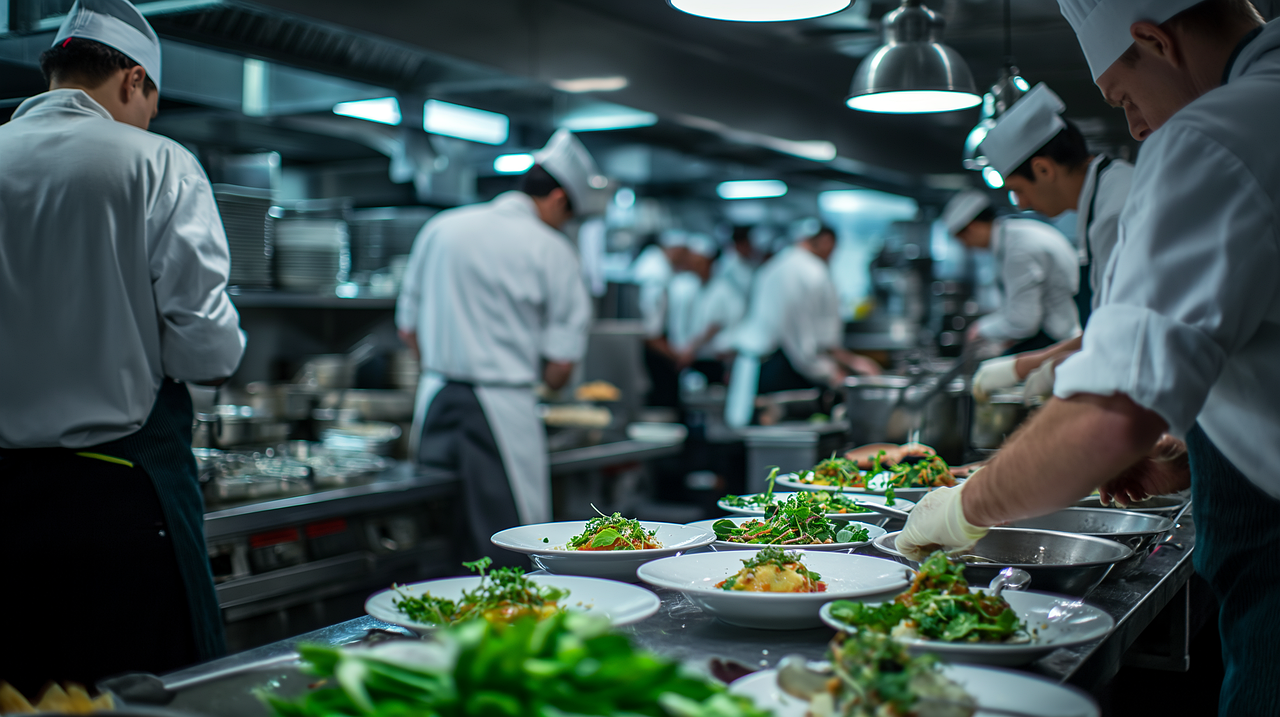


.png.f22691dc07f5a716b86fb73e534e6ff8.png)
.png.ab7177dddf21cda5c291b2a91550fbbe.png)
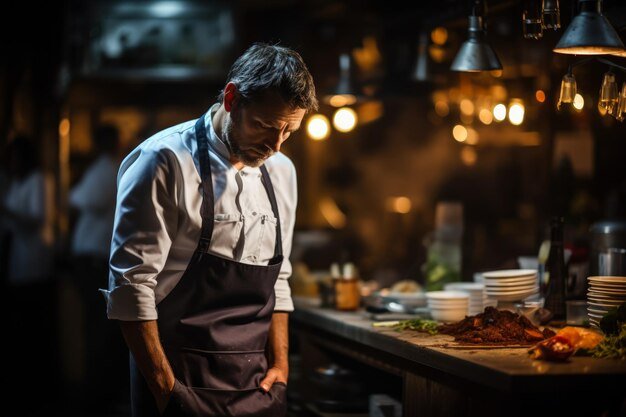

.png.402c5a21b9aa04312bf9c2894ec63aed.png)
.jpg.99dcf7754fea0a1d77d2773970c04056.jpg)


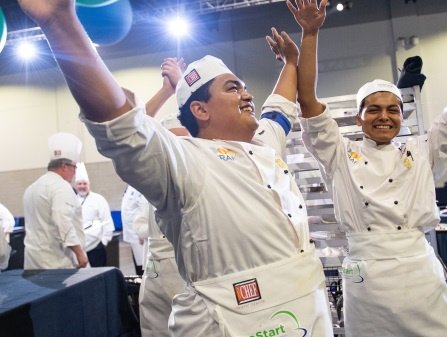
.png.6146783b993532d4d9f15d9e1e0217cb.png)
.png.e70cb2f38cb364c81a4ffd288beaf6ca.png)

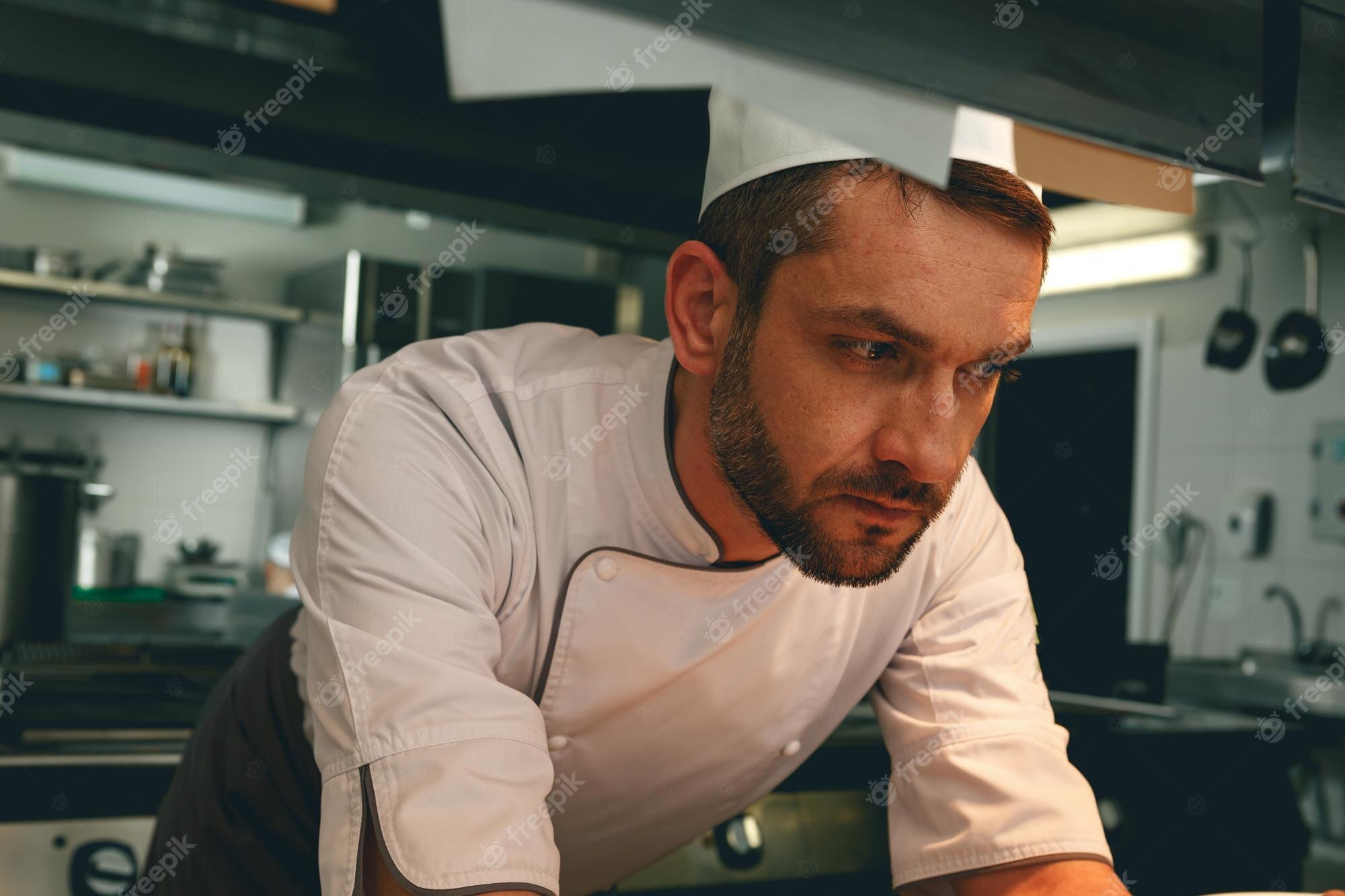
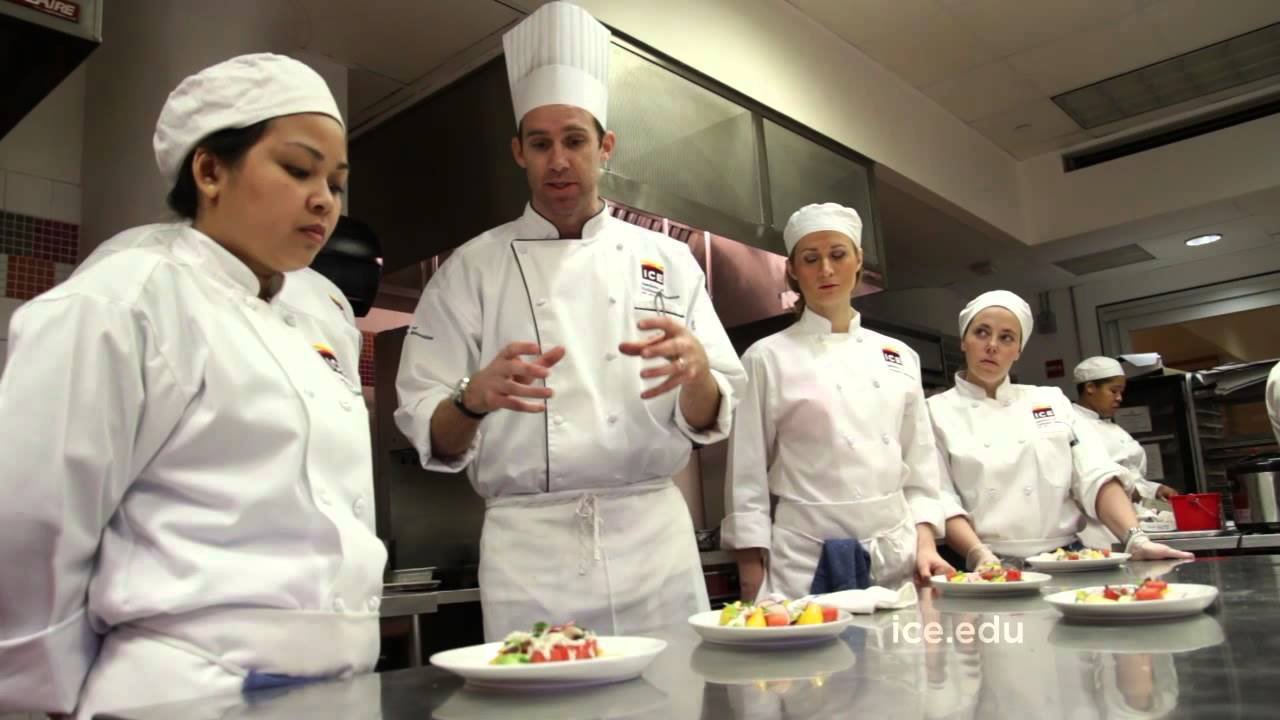
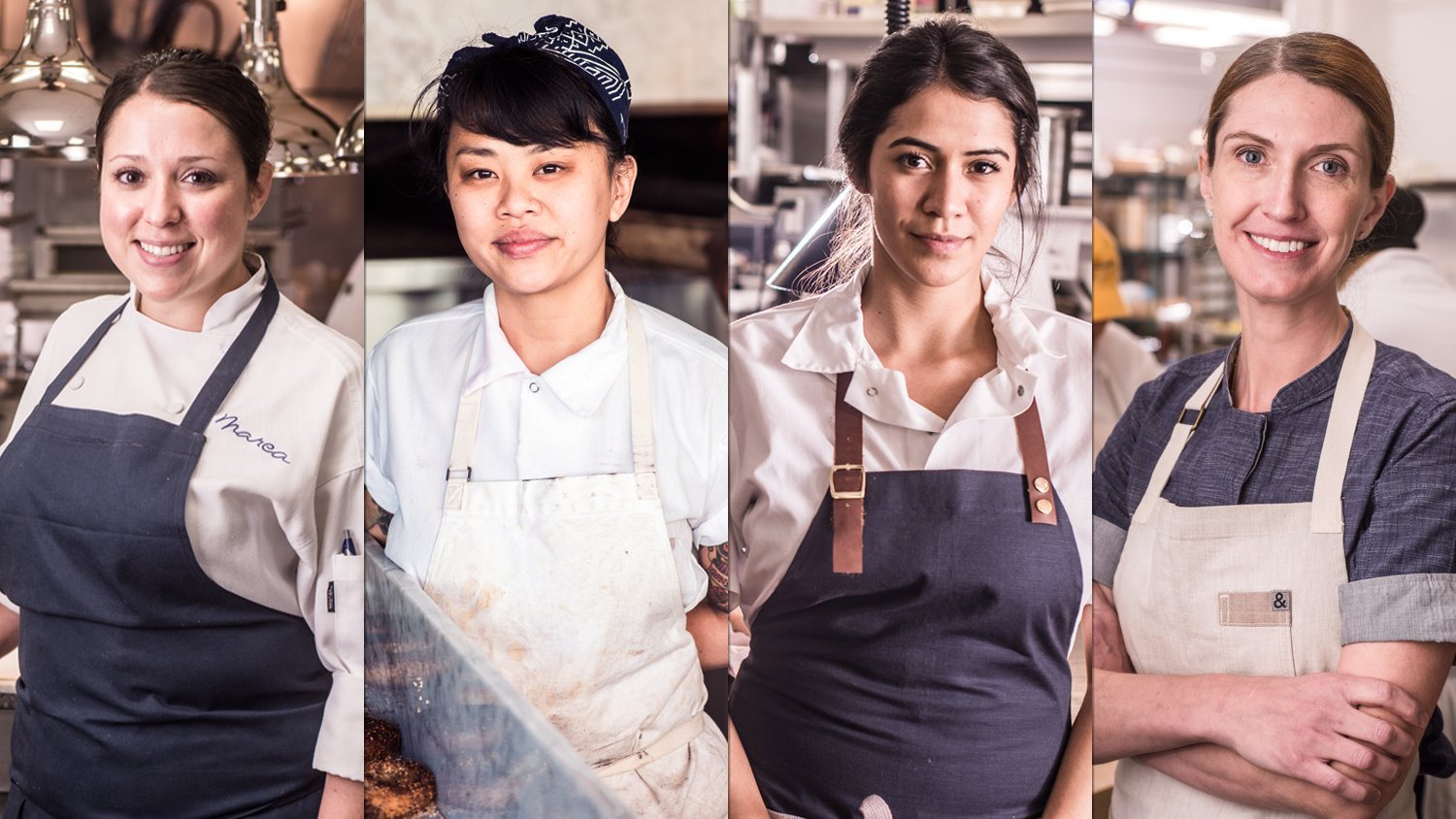
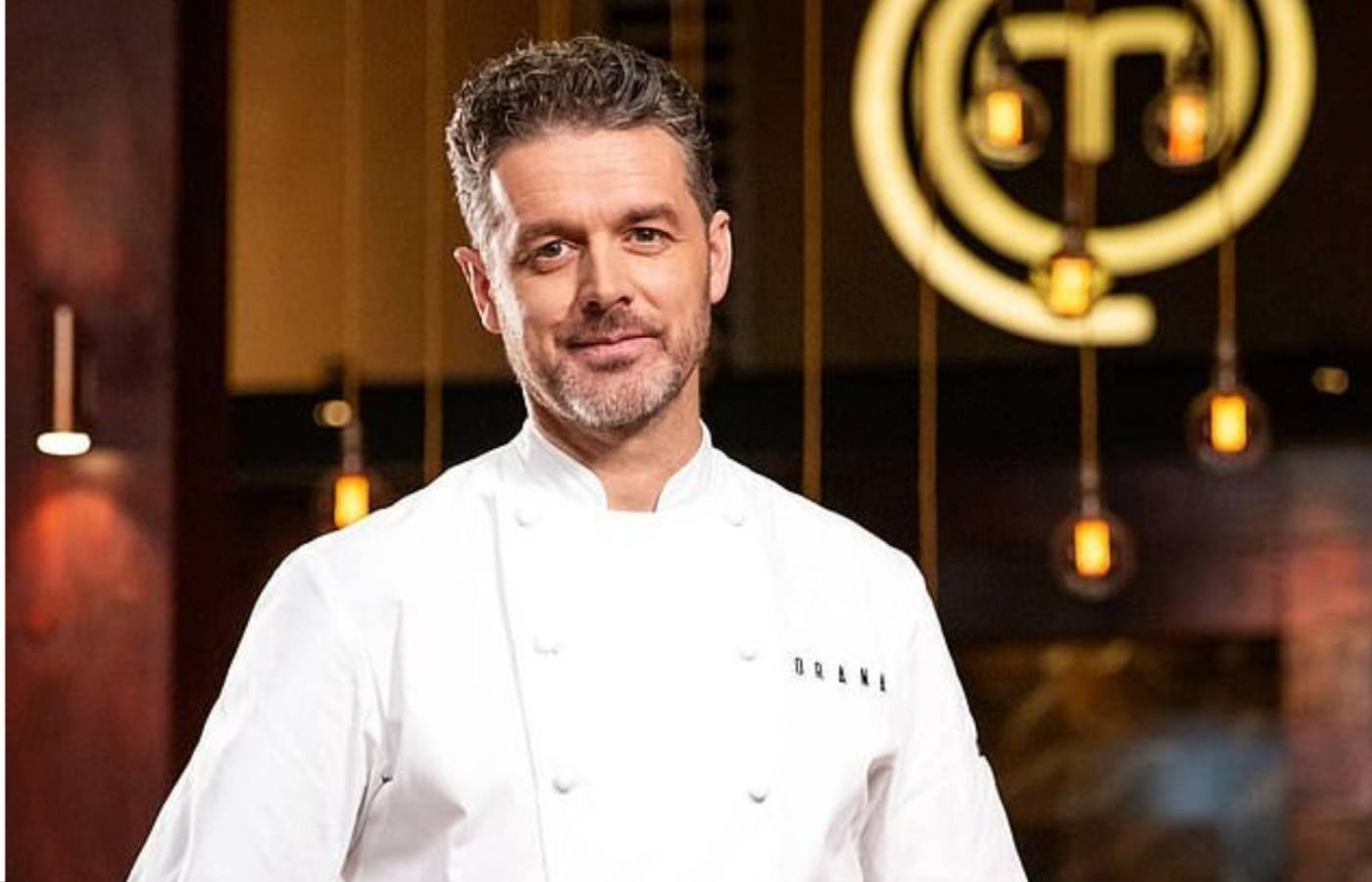
.png.6bcbb53b765c7dbc3895d6284ef6d6f8.png)